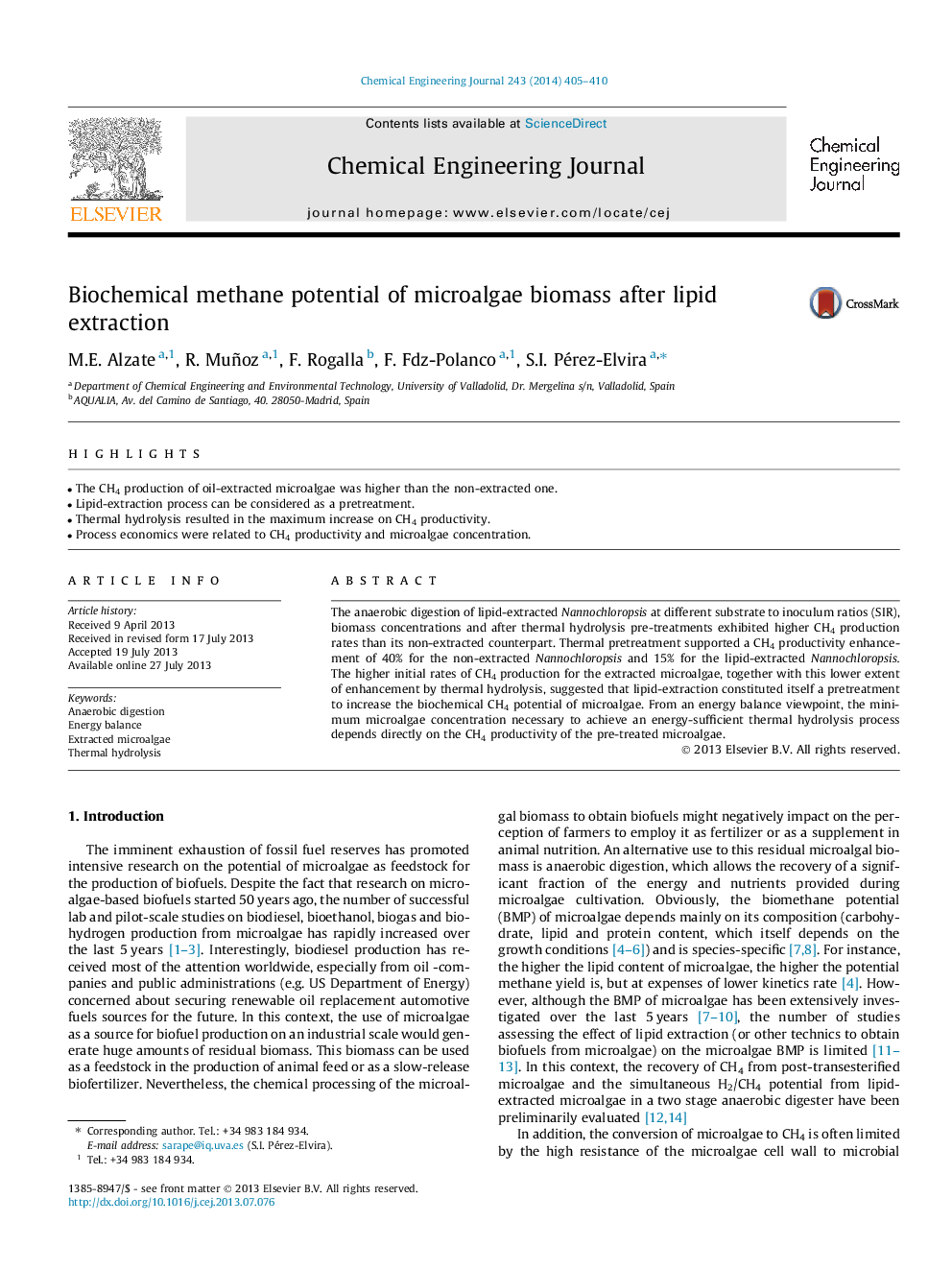| Article ID | Journal | Published Year | Pages | File Type |
|---|---|---|---|---|
| 147882 | Chemical Engineering Journal | 2014 | 6 Pages |
•The CH4 production of oil-extracted microalgae was higher than the non-extracted one.•Lipid-extraction process can be considered as a pretreatment.•Thermal hydrolysis resulted in the maximum increase on CH4 productivity.•Process economics were related to CH4 productivity and microalgae concentration.
The anaerobic digestion of lipid-extracted Nannochloropsis at different substrate to inoculum ratios (SIR), biomass concentrations and after thermal hydrolysis pre-treatments exhibited higher CH4 production rates than its non-extracted counterpart. Thermal pretreatment supported a CH4 productivity enhancement of 40% for the non-extracted Nannochloropsis and 15% for the lipid-extracted Nannochloropsis. The higher initial rates of CH4 production for the extracted microalgae, together with this lower extent of enhancement by thermal hydrolysis, suggested that lipid-extraction constituted itself a pretreatment to increase the biochemical CH4 potential of microalgae. From an energy balance viewpoint, the minimum microalgae concentration necessary to achieve an energy-sufficient thermal hydrolysis process depends directly on the CH4 productivity of the pre-treated microalgae.
